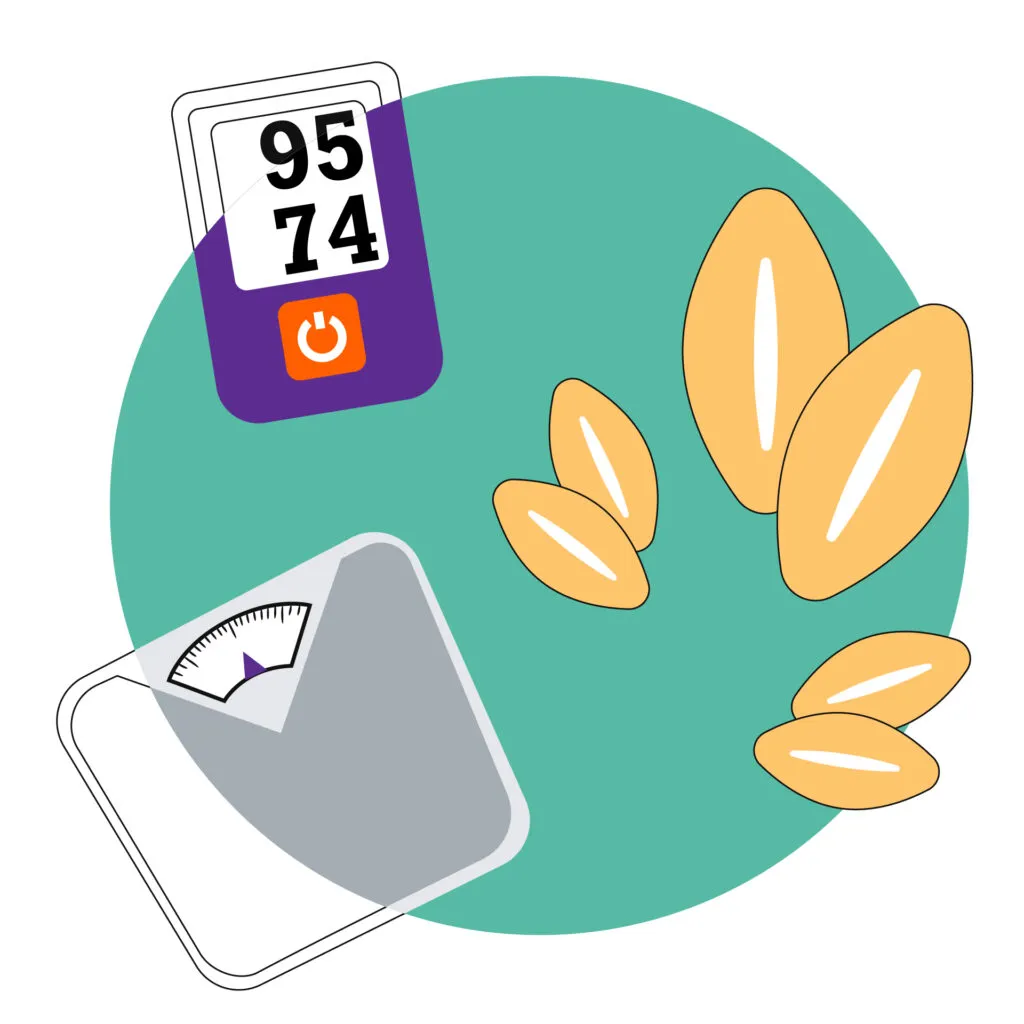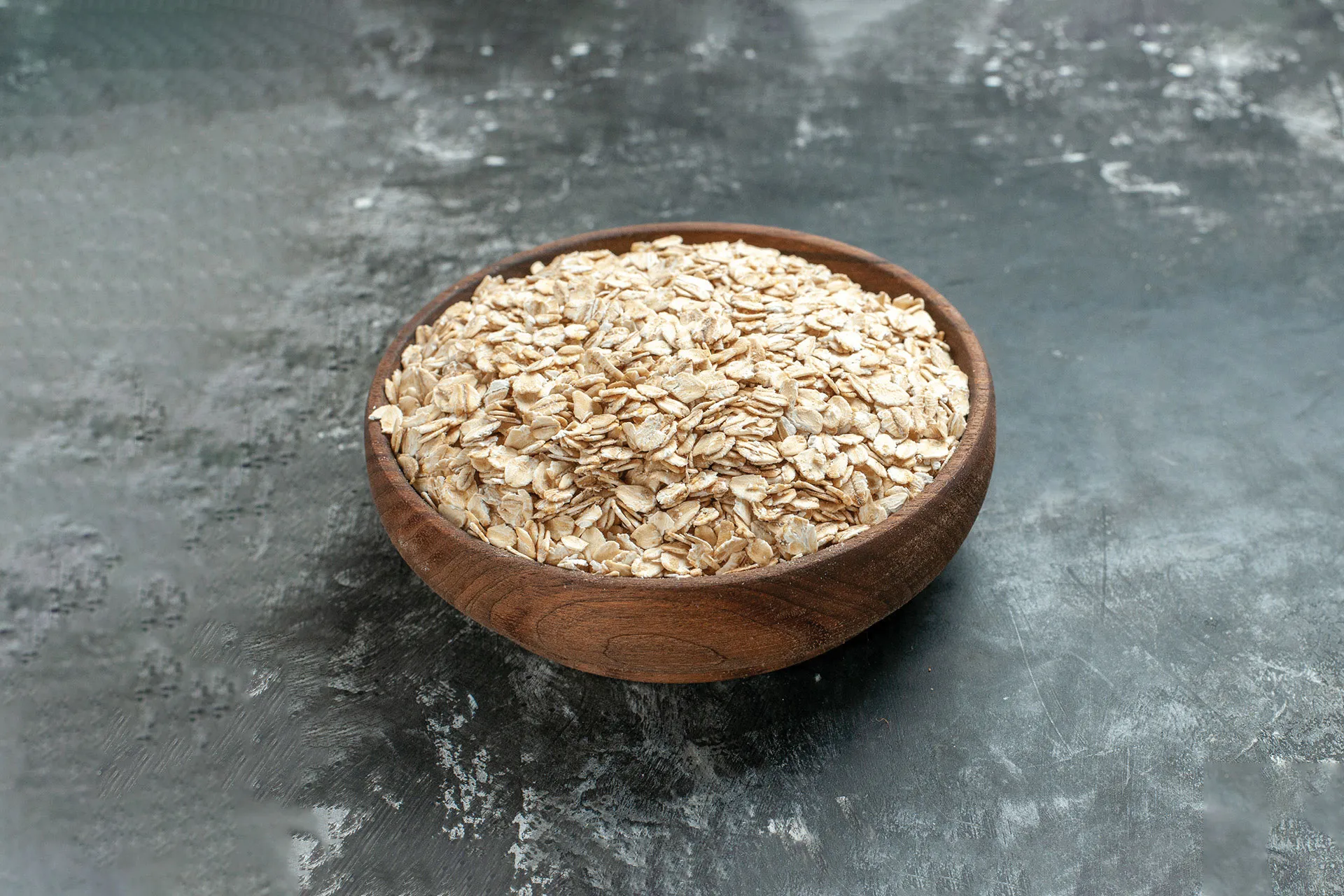Nutrition | 5 min read
6 Benefits of Oats as A Meal: Nutritional Value and Recipe
Medically reviewed by
Table of Content
Synopsis
How frequently do you eat oats? Find out about the key health benefits of oats, different recipes you can prepare with them, and how it constitutes a high-protein diet.
Key Takeaways
- There are multiple health benefits of oats as a food
- You can eat high-protein oats with any of the meals
- Individuals suffering from IBS should avoid oats
Oats are gluten-free whole grains and a top source of vital nutrients. High-protein oats have gradually become a popular meal for their multiple health benefits. In addition, regular consumption of oats is good for weight loss. It also reduces blood glucose levels and lowers the risks of cardiovascular diseases. Read on to learn about oats as a grain and the top benefits of oats.
What are oats?
The scientific name of oats is Avena sativa. Oats are cultivated as oat groats, but as it takes a long time to cook oat goats, steel-cut, crushed, and rolled oats are more popular. However, the most popular form of oats is instant oats. You can eat oats as a breakfast meal, also known as oatmeal and porridge, prepared by boiling oats in milk or water. Oats are also a major constituent in cookies, granola bars, muffins, and other baked foods.
Additional Read: Do You Eat Oats? 5 Benefits That Will Make You Want To Try!
Key benefits of oats
They are loaded with nutrients
Oats have multiple nutrients to offer, such as protein, fibre, and carbs. Oats’ protein has a balanced amount of essential amino acids [1]. They are also an excellent source of major vitamins and minerals. Overall, they are one of the most nutritious foods you can eat.
They are high in antioxidants
Oats are loaded with different types of antioxidants. A special type among them, named avenanthramides, is only found in oats [2]. This group of antioxidants boosts the production of nitric oxide, which helps reduce blood pressure by widening blood vessels. Apart from these, avenanthramides help reduce itching.
They contain a large amount of beta-glucan, a soluble fibre with multiple health benefits
Beta-glucan reduces LDL (bad) cholesterol, total cholesterol, and blood glucose levels and may improve insulin sensitivity [3]. Thus, it lowers the risk of strokes and cardiovascular diseases. It keeps you full for a long time and also boosts the production of good bacteria in your digestive tract.
Oats can be beneficial for skin care
Skin care products made from oats may be beneficial to heal the signs of eczema. However, remember that you can only get these skincare benefits from oats by applying skin care derivatives, not by consuming oatmeal.
They can help lower the risk of childhood asthma
One of the crucial benefits of oats is their role in the prevention of asthma, a severe condition that can affect your airways and lungs. Multiple studies have indicated that oats can help reduce the risk of asthma among children.
Oats can help regulate the movement of bowels
Constipation is one of the most common conditions suffered by people across ages. According to research, about 16% of adults suffer from irregular bowel movements due to constipation. For people over 60, the ratio goes up to 33% [4]. Research shows that oat bran, too, can relieve gastrointestinal symptoms. Overall, good stomach health is one of the key benefits of oats.
Apart from all these benefits of oats, remember that consuming oats or any other type of whole grains reduces your risk of colorectal cancer.
Oats for weight loss
As oatmeal keeps you full for a long time, consuming it is a wise way to have fewer calories and reduce weight. The beta-glucan plays a crucial role here by boosting your feeling of fullness. Thus, it is one of the key benefits of oats.
Additional Read: Protein Rich Food: Top 22 Delicious Richest Sources of ProteinHow to incorporate oats into your diet – popular recipes
Oats can be added to your diet in different forms. A few common ones are rolled oats, instant oats, steel-cut oats, oat groats, and Scottish oats. However, the most popular one is oatmeal or porridge, which you can prepare with a few cups of rolled oats, the same amount of water or milk, and a few tablespoons of salt. Overnight oats are also quite popular, where you have to let the oats soak with milk or yoghurt for a night and eat the mixture the next morning. To make oatmeal yummier and wholesome, you can add seeds, nuts, fruits, yoghurt, and more. Oats are also a common ingredient in bread, granola, muesli, and baked items.
Though most oats don’t have gluten, some get it from harvesting equipment. So if you are sensitive to gluten, make sure to consume certified gluten-free oats.

Conclusion
Oats can be a wise choice if you are looking forward to adding new protein-rich food to your high-protein diet. Oats are also among the healthy foods for weight loss. However, apart from consuming oats for weight loss, consider making them a part of your diet. It is easy to prepare and digest. Book an online doctor consultation on Bajaj Finserv Health to learn about the benefits of oats. Upon consultation, a general physician and other specialists available on the platform will guide you to follow a balanced diet, with oats being an essential part of your meals. Act without delay to keep your digestive health in check!
FAQ
Is it good to eat oats daily?
Yes, you can make oats a part of your daily meal due to their ample health benefits.
What do oats do to your body?
The benefits of oats for your body are as follows:
- Lower blood sugar level
- Help relieve constipation
- Keep you full for a long time
- It may help you lose a few kilos
- Control total and KDL cholesterol levels
Who shouldn’t eat oatmeal?
If you suffer from gastrointestinal issues like irritable bowel movement (IBS), oatmeal can worsen the matter. So, in such situations, it is better to add oats to your diet only after your nutritionist permits it.
References
- https://www.ncbi.nlm.nih.gov/pmc/articles/PMC4325078/
- https://www.ncbi.nlm.nih.gov/pmc/articles/PMC5752969/
- https://www.nature.com/articles/s41430-021-00875-9?utm_medium=affiliate&utm_source=commission_junction&utm_campaign=CONR_PF018_ECOM_GL_PHSS_ALWYS_DEEPLINK&utm_content=textlink&utm_term=PID100090071&CJEVENT=d66ecc837eb311ed8338e5730a18ba74
- https://www.niddk.nih.gov/health-information/digestive-diseases/constipation/definition-facts
Disclaimer
Please note that this article is solely meant for informational purposes and Bajaj Finserv Health Limited (“BFHL”) does not shoulder any responsibility of the views/advice/information expressed/given by the writer/reviewer/originator. This article should not be considered as a substitute for any medical advice, diagnosis or treatment. Always consult with your trusted physician/qualified healthcare professional to evaluate your medical condition. The above article has been reviewed by a qualified doctor and BFHL is not responsible for any damages for any information or services provided by any third party.





